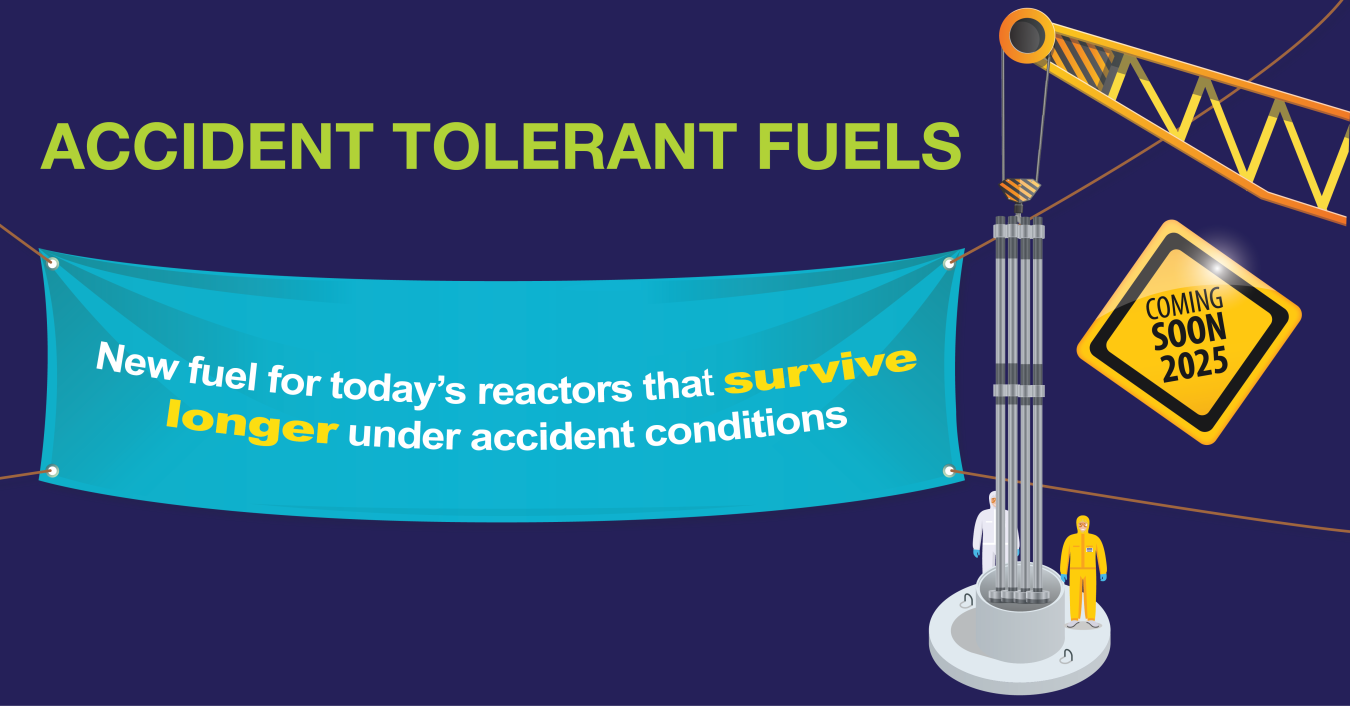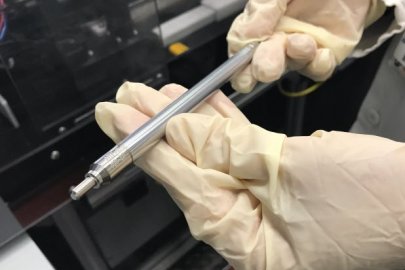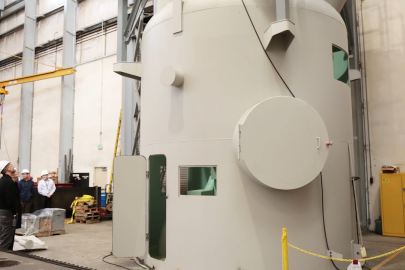Accident tolerant fuels have the potential to improve performance and survive accident conditions a lot longer than today's nuclear fuel.
July 17, 2018
NE Showcase Page
The U.S. Department of Energy is working with industry to quickly develop new fuels with enhanced accident tolerance.
These nuclear fuels will not only increase the safety of today’s light-water reactors but also improve plant performance at a crucial time for the U.S. nuclear industry.
A number of reactors are currently under economic stress and the benefits that these fuels bring to the table could make the case for utilities to extend plant operations.
Here are 5 things you need to know about accident tolerant fuels.

Click above to view the full infographic on accident tolerant fuels.
1. Accident tolerant fuels beat the heat and perform better
Nuclear fuel is exposed to harsh conditions inside the reactor core.
Accident tolerant fuels use new materials that reduce hydrogen buildup, improve fission product retention and are structurally more resistant to radiation, corrosion, and high temperatures.
In short, these fuel concepts will perform better and withstand extreme heat and steam for longer durations than the current fuel system of uranium dioxide fuel and zircaloy cladding.
2. Accident tolerant fuels last longer
Accident tolerant fuels will be able to last longer and operate more efficiently in a reactor core. This could potentially extend the time between refueling from 1.5 years to 2 years or more and use roughly 30% less fuel. That would mean less waste and reduced fuel costs over the life of the reactor.
3. Accident tolerant fuels improve plant performance
In addition to lasting longer, accident tolerant fuels are also designed to have higher burnup. This means plants would run for longer periods of time, possibly at higher power, with less downtime—leading to higher profit margins for the plants.

Join the Conversation
4. Accident tolerant fuels are industry-led
Framatome, General Electric (GE) and Westinghouse are leading the charge to aggressively develop new reactor fuels in an accelerated timeframe.
DOE and the national labs are supporting these efforts with irradiation and safety testing, along with advanced modeling and simulation to help qualify their fuels with the U.S. Nuclear Regulatory Commission.
5. Accident tolerant fuels could debut by 2025
Framatome, GE’s Global Nuclear Fuel and Westinghouse are currently testing their accident tolerant fuels. With support from the government and national labs, the three companies hope to commercialize their fuels and deploy them to commercial reactors by 2025.

Learn more about our accident tolerant fuels program.




